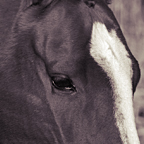


About
Grey Ghost Farm
Scott's Work
• Carpentry
• Tile
Stacy's Work
• Graphic Design
• Artistic
The Family!
Weims
& Ex-Racers

 |
|||||||||||||||
 |
|||||||||||||||
 |
|||||||||||||||
| Home About Grey Ghost Farm Scott's Work • Carpentry • Tile Stacy's Work • Graphic Design • Artistic The Family! Weims & Ex-Racers |
|||||||||||||||
 |
|||||||||||||||
|
Thoroughbreds
|
Thoroughbred Links
|
||||||||||||||
|
|
|||||||||||||||
| © 2007 Grey Ghost Farm |
Some imagery courtesy of www.morguefile.com, the BEST FREE PHOTOS on the web!
|
||||||||||||||
Finding homes for OTTBs (off-the-track Thoroughbreds)
Depending on whose numbers are to be believed, more than 60,000 horses are slaughtered in the US each year. The meat is exported to Europe and Asia for human consumption. Unfortunately, many ex-racehorses meet that fate. It was feared that Bell might end up in a slaughteryard. Thanks to the tireless efforts of CANTER NE, they spread the word online and we were able to bring her home.
Author Bill Heller has written a book, After the Finish Line: The Race to End Horse Slaughter in America. It provides details on horse slaughter, the ongoing fight in our nation's capital to end it, and those who are devoting their lives to help save these animals.
The Exceller Fund was formed in memory of Exceller, a Racing Hall of Fame racehorse. He died in 1997, in a slaughterhouse in Sweden. Their mission is to provide funding for the purchase, care, retirement and adoption of Thoroughbreds who might otherwise meet the same fate. Ferdinand, who won the Kentucky Derby in 1986, also met his end in a slaughterhouse in 2003.
What can be done to help these horses?
Support rescue groups like CANTER and The Exceller Fund. Donations are tax-deductible.
Follow the news and support the bill to ban slaughter. The American Horse Slaughter Prevention Act would "prohibit the shipping, transporting, moving, delivering, receiving, possessing, purchasing, selling, or donation of horses and other equines to be slaughtered for human consumption, and for other purposes."
However, there is concern that unethical treatment of horses (starvation, abuse, etc.) may increase. Groups such as the American Horse Council are discussing long-term solutions to improve the quality of life for unwanted horses.